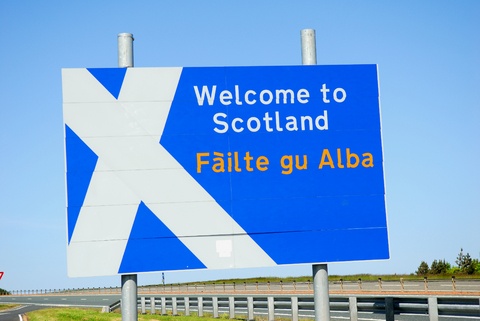
The new Land and Building Transaction Tax (LBTT) in Scotland replaced traditional stamp duty on property purchases from April 2015. This was a controversial tax because while helping those towards the lower end of the housing market, it shifted significant costs to those in the middle to higher end. Now we have data for a full year there is confusion and a degree of concern about the impact it is having on the Scottish property market.
More information required
There are so many different parties lobbying for and against the LBTT that it is difficult to clarify its direct impact. The term “operationally successful” implies it has been introduced successfully but whether it has raised any additional funds remains to be seen. Members of the Scottish Parliament finance committee were cautious in their recent review suggesting “it was too early to draw any definitive conclusions”.
Statistics for the LBTT
While data covering the whole issue of property tax during the first year of the LBTT is patchy to say the least, we do have some statistics. Of those acquiring property in Scotland since the introduction of the LBTT we know that 9,700 buyers who would normally have been liable to traditional stamp duty paid no tax under the LBTT system. Those buying properties valued at between £145,000 and £325,000 paid less tax under the new regime. However, at this moment in time it seems that data for properties valued in excess of £325,000, where there was an increase in tax liability, is not yet available.
Impact on property prices
While “operationally successful” it does look as though the LBTT has not raised as much funds as forecasts. This would appear to be a direct consequence of the increased cost to houses valued over £325,000 where the market is stagnant at best and fading at worst. There is some concern that a reduced tax liability on properties at the lower end of the spectrum may be increasing demand and pushing prices higher. Could this be pushing prices above and beyond the reach of first-time buyers?
It is difficult to get a clear picture of the overall situation until we know the impact on properties towards the higher end of the price spectrum. There is also a lot of political meddling in reports made public which is not helping the situation. When you take into account the difficult economic backdrop, political uncertainty and Brexit then perhaps it is no surprise to see the property market right across the UK slowing from recent levels of growth.
Political meddling
Time and time again politicians like to meddle in the property market which is often seen as a cash cow in times of budgetary challenges. This meddling is not unique to Scotland as governments across the UK have done their best to milk the system by increasing taxes. The idea that those towards the higher end of the markets can “afford a tax rise” may seem fair in theory but in practice it is having an impact upon transaction levels and property prices.
We should receive more detailed information in the coming weeks and months which will give a clearer picture of the LBTT and the impact on specific areas of the market.

